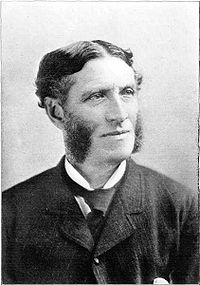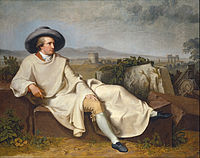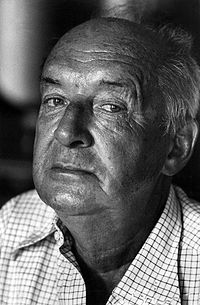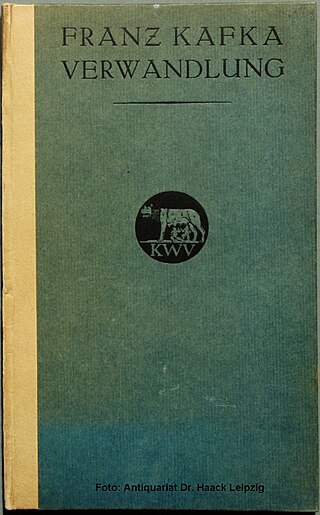
The Metamorphosis is a novella by Franz Kafka published in 1915. One of Kafka's best-known works, Metamorphosis tells the story of salesman Gregor Samsa, who wakes one morning to find himself inexplicably transformed into a huge insect and struggles to adjust to this condition. The novella has been widely discussed among literary critics, who have offered varied interpretations. In popular culture and adaptations of the novella, the insect is commonly depicted as a cockroach.

The Philistines were an ancient people who lived on the south coast of Canaan during the Iron Age in a confederation of city-states generally referred to as Philistia.

The bourgeoisie are a class of business owners and merchants which emerged in the Late Middle Ages, originally as a "middle class" between peasantry and aristocracy. They are traditionally contrasted with the proletariat by their wealth, political power, and education, as well as their access to and control of cultural, social and financial capital.

Matthew Arnold was an English poet and cultural critic. He was the son of Thomas Arnold, the headmaster of Rugby School, and brother to both Tom Arnold, literary professor, and William Delafield Arnold, novelist and colonial administrator. He has been characterised as a sage writer, a type of writer who chastises and instructs the reader on contemporary social issues. He was also an inspector of schools for thirty-five years, and supported the concept of state-regulated secondary education.

Thomas Carlyle was a Scottish essayist, historian, and philosopher from the Scottish Lowlands. A leading writer of the Victorian era, he exerted a profound influence on 19th-century art, literature, and philosophy.

Karl Wilhelm FriedrichSchlegel was a German poet, literary critic, philosopher, philologist, and Indologist. With his older brother, August Wilhelm Schlegel, he was one of the main figures of Jena Romanticism.
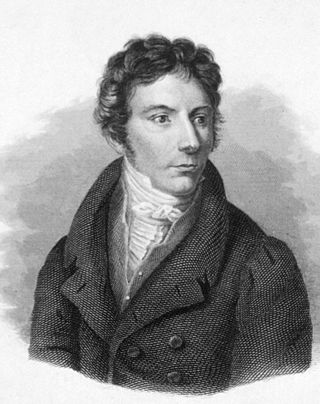
Lorenz Oken was a German naturalist, botanist, biologist, and ornithologist.

Edward Dowden was an Irish critic, professor, and poet.

Barker Fairley, was a British-Canadian painter, and scholar who made a significant contribution to the study of German literature, particularly for the work of Goethe, and was an early champion and friend of the Group of Seven.

Sartor Resartus: The Life and Opinions of Herr Teufelsdröckh in Three Books is an 1831 novel by the Scottish essayist, historian and philosopher Thomas Carlyle, first published as a serial in Fraser's Magazine in November 1833 – August 1834. The novel purports to be a commentary on the thought and early life of a German philosopher called Diogenes Teufelsdröckh, author of a tome entitled Clothes: Their Origin and Influence. Teufelsdröckh's Transcendentalist musings are mulled over by a sceptical English Reviewer who also provides fragmentary biographical material on the philosopher. The work is, in part, a parody of Hegel, and of German Idealism more generally.
Geist is a German noun with a significant degree of importance in German philosophy. Geist can be roughly translated into three English meanings: ghost, spirit, and mind or intellect. Some English translators resort to using "spirit/mind" or "spirit (mind)" to help convey the meaning of the term.

The Philistine language is the extinct language of the Philistines. Very little is known about the language, of which a handful of words survived as cultural loanwords in Biblical Hebrew, describing specifically Philistine institutions, like the seranim, the "lords" of the Philistine five cities, or the ’argáz receptacle, which occurs in 1 Samuel 6 and nowhere else, or the title padî.

Weimar Classicism was a German literary and cultural movement, whose practitioners established a new humanism from the synthesis of ideas from Romanticism, Classicism, and the Age of Enlightenment. It was named after the city of Weimar, Germany, because the leading authors of Weimar Classicism lived there.
Poshlost or poshlost' is a Russian word for a particular negative human character trait or man-made thing or idea. It has been cited as an example of a so-called untranslatable word, as there is no single exact one-word English equivalent. It carries much cultural baggage in Russia and has been discussed at length by various writers.

Johann Wolfgang von Goethe was a German polymath and writer, who is widely regarded as the greatest and most influential writer in the German language. His work has had a profound and wide-ranging influence on Western literary, political, and philosophical thought from the late 18th century to the present day. Goethe was a German poet, playwright, novelist, scientist, statesman, theatre director, and critic. His works include plays, poetry and aesthetic criticism, as well as treatises on botany, anatomy, and color.
Several economic theories of the first half of the 19th century were influenced by Romanticism, most notably those developed by Adam Müller, Simonde de Sismondi, Johann Gottlieb Fichte and Thomas Carlyle. Michael Löwy and Robert Sayre first formulated their thesis about Romanticism as an anti-capitalist and anti-modernist worldview in a 1984 article called "Figures of Romantic Anti-capitalism". Romantic anti-capitalism was a wide spectrum of opposition to capitalism, ultimately tracing its roots back to the Romantic movement of the early 19th century, but acquiring a new impetus in the latter part of the 19th century.
The philosophical ideas and thoughts of Edmund Burke, Thomas Carlyle, Johann Gottlieb Fichte, Friedrich Wilhelm Joseph Schelling, Søren Kierkegaard, Arthur Schopenhauer and Richard Wagner have been frequently described as Romantic.
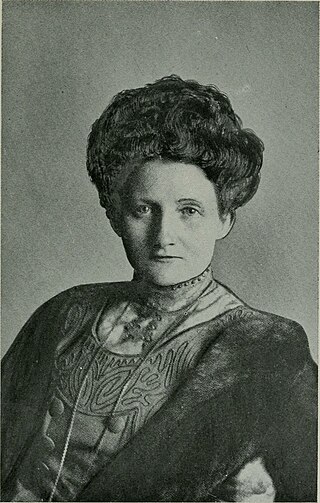
Lulu von Strauss und Torney (1873–1956) was a German poet and writer. Best remembered for her ballads, she also wrote historical fiction with rural settings in northwest Germany.
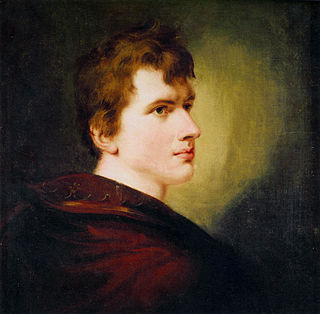
The German Table Society was a literary society in Berlin which existed from 1811 to 1834.
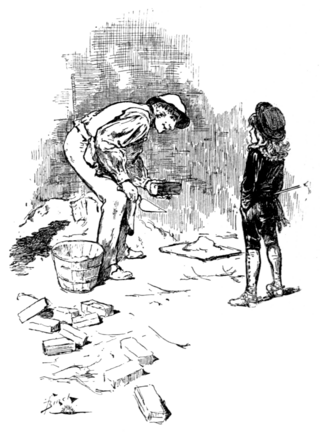
Genteel poverty is a state of poverty marked by one's connection or affectation towards a higher social class. Those in genteel poverty are often people, possibly titled, who have fallen from wealth due to various circumstances. Others may be working-class people, but are seen as the "genteel poor" if they are perceived as more refined than others in their social class.
